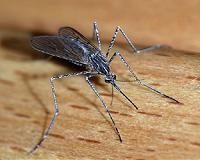| . |  |
. |
Santo Domingo (AFP) Nov 29, 2010 Dominican authorities said Monday they have diagnosed two new cases of cholera, raising to at least nine the number of people infected with the disease in cholera-stricken Haiti's neighbor. Health Minister Bautista Rojas said the most recent patients were Haitian citizens from the northwestern town of Navarrete, "where 80 homes are overcrowded and mostly occupied by Haitians." The Dominican Republic has stepped up efforts to stop the advance of cholera from Haiti after discovering a the highly contagious disease within its own borders earlier this month. The disease has already killed at least 1,721 people and infected 75,888 people in Haiti, which shares the Caribbean island of Hispaniola with the Dominican Republic. The two countries also share a porous border of some 376 kilometers (234 miles).
earlier related report The latest toll comes a day after Haitians voted in chaotic elections marred by violence and widespread allegations of fraud. A total of 75,888 people have been infected by the disease and 33,485 have been hospitalized since the outbreak in mid-October. The most hard-hit region, Artibonite, has seen 750 people die from cholera, while another 162 people have died from the disease in the capital Port-au-Prince. Six cases have been confirmed in the neighboring Dominican Republic and a seventh in Miami, Florida -- the first stop for most people leaving Haiti. French cholera specialist Renaud Piarroux said Monday that the strain of cholera making its way through Haiti must have been brought in from abroad and warned the disease could eventually infect up to 200,000 people. "It started in the centre of the country, not by the sea, nor in the refugee camps. The epidemic can't be of local origin," he told AFP following a visit to the country. The UN peacekeeping mission in Haiti has been widely blamed for the outbreak, with many Haitians saying it came from Nepalese soldiers posted in Artibonite, where the first cases were reported. But last week Edmond Mulet, the head of the UN mission in Haiti, said none of his staff or soldiers had tested positive for the illness and that samples taken from the Nepalese camp showed no sign of the disease. Cholera is caused by bacteria spread in contaminated water or food, often through feces. If untreated, it can kill within a day by causing rapid dehydration, with the old and the young the most vulnerable.
Share This Article With Planet Earth
Related Links Epidemics on Earth - Bird Flu, HIV/AIDS, Ebola
 Experts split on global warming, highland malaria
Experts split on global warming, highland malariaNairobi (AFP) Nov 28, 2010 Malaria cases in east African highland areas hitherto unaffected by the disease have caused worry that global warming is creating new mosquito breeding grounds but experts disagree on whether there is actually any link between the two. "We have recently seen waves of epidemics in highland areas. ... They have actually killed people," said Dr. Amos Odiit, who was until October head of clinica ... read more |
|
| The content herein, unless otherwise known to be public domain, are Copyright 1995-2010 - SpaceDaily. AFP and UPI Wire Stories are copyright Agence France-Presse and United Press International. ESA Portal Reports are copyright European Space Agency. All NASA sourced material is public domain. Additional copyrights may apply in whole or part to other bona fide parties. Advertising does not imply endorsement,agreement or approval of any opinions, statements or information provided by SpaceDaily on any Web page published or hosted by SpaceDaily. Privacy Statement |